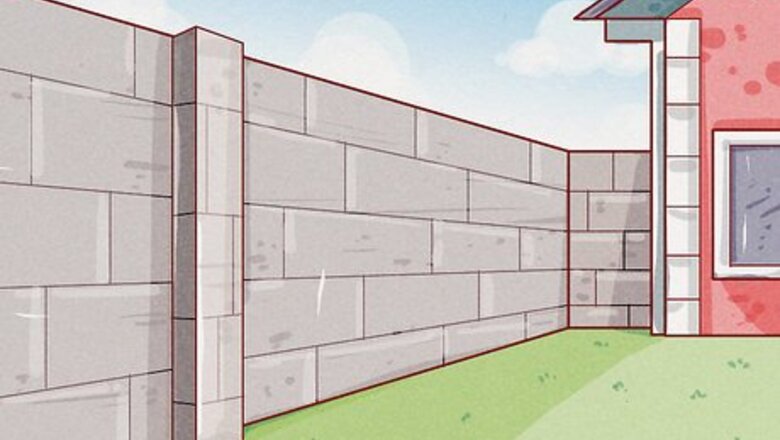
views
Using Outside Noise Blockers
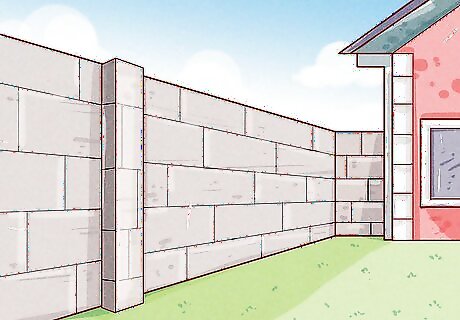
Build a fence. Building a fence around your yard can help block out any unwanted noises. Find a solid structure, like stone, brick, or just solid stockade or board fences, and construct a high fence on your property. Fill any open spaces along the ground with pressure-treated timbers. Check with your township for rules and regulations beforehand - you don't want to start building a fence only to learn your neighborhood doesn't allow them! Make sure you're building on your own property line. There's no better way to get on your neighbors bad side than constructing something on their property!
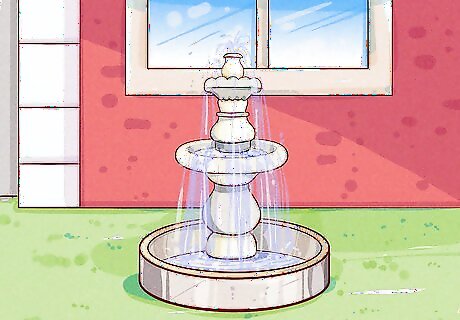
Place a fountain near your house. Running water does two things: drown out other noise and create a peaceful environment. The water will create a continuous gurgle, and though it is in the same frequency as something loud like a lawn mower, flowing water is a much more enjoyable sound. Have it close enough to your home, and it will help drown out undesirable noises. You don't need a fancy or expensive fountain to do the trick. Fountains are seasonal, so you probably won't want one running all-year round unless you live in a warm area. Fountains can only mask so many sounds. You'll likely still be able to hear blaring noises like horns or alarms over the running water.
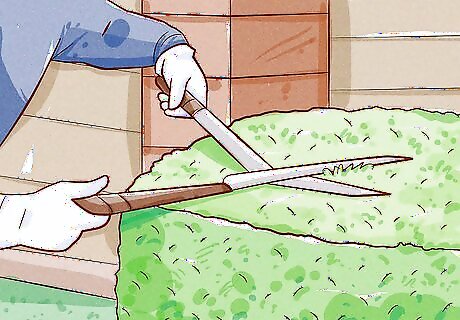
Shape hedges around your yard. Hedges are an attractive way to reduce traffic noise. Leaves, twigs, branches, and trunks offer a physical shield from noise. Like a fence, tall hedges keep outside sounds out of sight, which helps reduce the loudness. Hedges are aesthetically pleasing, and plants are known to reduce stress and anxiety. Before they can reduce noise, plants must mature.
Blocking Noise From the Inside
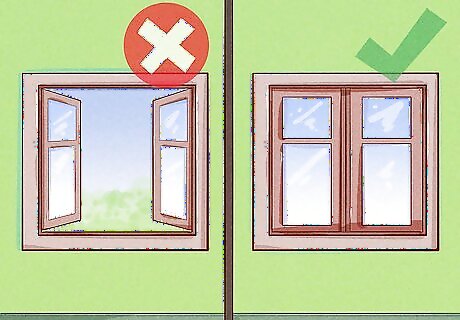
Close and cover your windows. If your windows face the highway, keep them closed. Hang heavy, velvet curtains too. The thickness of the fabric combined with the closed windows will serve as a barrier, blocking excess noise and keeping your home peaceful.
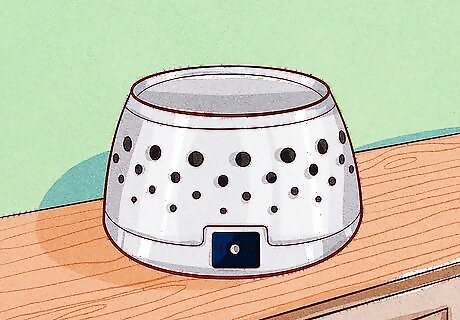
Buy a white noise machine. During the summer, you might not want your windows closed all the time. Or maybe you don't have air conditioning. In either case, a noise machine would be useful. White noise machines can block out background noises and jarring sounds, such as a car horn or tires screeching. As an alternative, you could also use a portable AC unit.
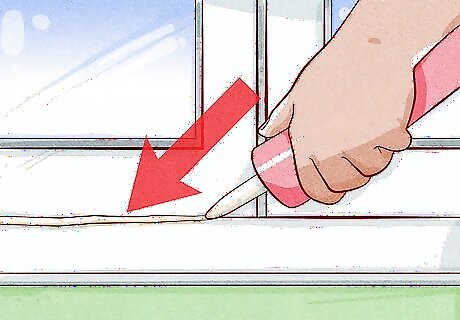
Check the caulking around your windows. See if the caulking around the windows is still in place, and if it's not, repair or reseal it. If your windows are old and your caulking is not completely sealed, you could possibly be leaking air and sound. If so, this means more traffic noise will enter your home. If you live in an apartment, check with your landlord to ensure they are okay with you using sealant on your windows.

Put in some earplugs. When all else fails, use earplugs to muffle any undesirable noises. Most earplugs come with a Noise Reduction Rating (NRR) that indicate how much noise they can block. If the traffic noise is nearly constant, find some earplugs that are both comfortable and durable - you might have them in your ears for a while!

















Comments
0 comment